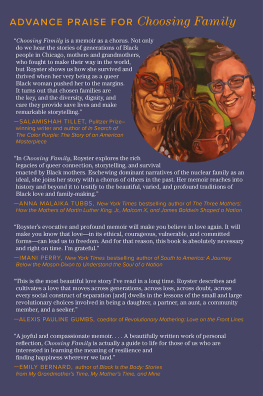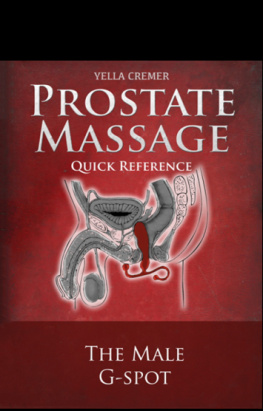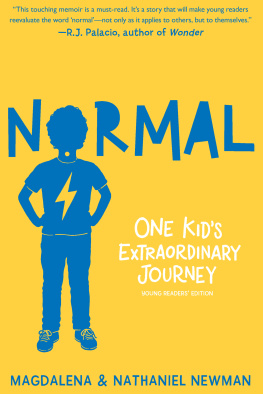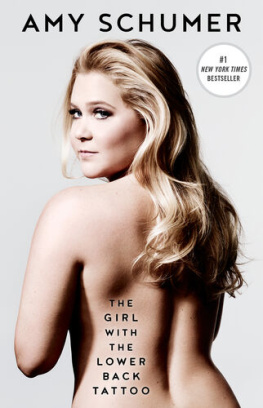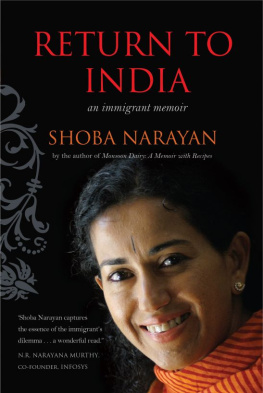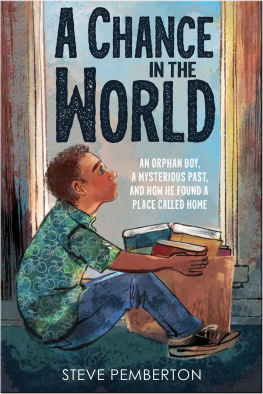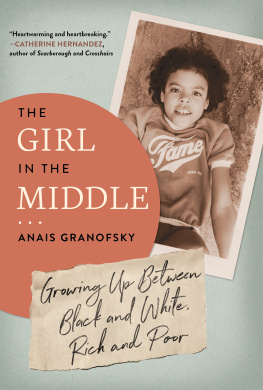High Yella

SERIES EDITOR
Valerie Boyd
SERIES ADVISORY BOARD
Dan Gunn
Pam Houston
Phillip Lopate
Dinty W. Moore
Lia Purpura
Patricia Smith
High Yella
A Modern Family Memoir
STEVE MAJORS
The University of Georgia Press
Athens
Published by the University of Georgia Press
Athens, Georgia 30602
www.ugapress.org
2021 by Steve Majors
All rights reserved
Designed by Rebecca A. Norton
Set in 10.5/14 Adobe Jenson Pro
Printed and bound by Sheridan Books, Inc.
The paper in this book meets the guidelines for permanence and durability of the Committee on Production Guidelines for Book Longevity of the Council on Library Resources.
Most University of Georgia Press titles are available from popular e-book vendors.
Library of Congress Cataloging-in-Publication Data
Names: Majors, Stephen, 1966 author.
Title: High yella : a modern family memoir / Steve Majors.
Description: Athens, Georgia : The University of Georgia Press, [2021] |
Series: Crux: the Georgia series in literary nonfiction
Identifiers: LCCN 2021013965 | ISBN 9780820360317 (hardback ; alk. paper) | ISBN 9780820360324 (ebook)
Subjects: LCSH: Majors, Stephen, 1966 | African American gay menBiography. | African American familiesBiography. | African AmericansSocial conditions. | African AmericansRace identity. | African AmericansColor. | GaysIdentity. | Gay parentsUnited StatesBiography.
Classification: LCC E185.97.M225 A3 2021 | DDC 306.76/6208996073dc23
LC record available at https://lccn.loc.gov/2021013965
To Todd and our daughters,
Thank you for being my forever family.
Contents
High Yella
CHAPTER 1
The Music Man
In 1971 Pops took me for a drive in his beat-up Ford station wagon. We were at the head of a long line of cars on Main Street, and it felt like I was riding in a parade. As we sailed through the yellow light, I could hear horns give out polite toots, annoyed honks, and a few blind-rage blares. Pops loved the attention, but for all the wrong reasons.
Goddamn palefaces, he laughed.
I kneeled on the bench seat in the front of the car to peek in the rearview mirror. Behind us, I could just make out the rusted muffler that had dropped off our car a half block away. It sat there like a turd in the heart of our small town of Batavia, New York. Pops might have been too crocked to notice, or he could have just looked back and reminded himself, as he often told us kids, he didnt give a damn what whitey thought.
Pops had also told me that whitey couldnt be trusted. I glanced over at his brown face glistening with sweat and then back at my own pale reflection in the mirror. Was I a whitey?
I let the strange thought go when I felt my bare knees scorching on the sunbaked plastic upholstery. I plopped back down on my butt and scrambled over to the passenger window to hang my head out and catch a breeze. Before I leaned against it, I made sure the creaky door was latched shut. Even at five years old, I knew Pops might take a wild turn that could fling me out onto the street. He might leave me behind like the muffler.
The whoosh of the wind felt good on my face and brought some relief from the sweet stink of the exhaust that now came from the back of the station wagon. Hanging half out the window, I could also see the sights. We only visited town when we had money to spend, overdue bills to pay, or trouble to resolve with the police. On this day, Pops was headed to the liquor store. I was excited. A trip to the liquor store meant Id get free candy from the owner. But I also knew that he might look at my face and crack a joke: What, you the mailmans kid?
As Pops guided our station wagon down Main Street, I looked out at Batavia. There were big two-story department stores, old brick banks, and a single-screen movie theater. To us, living out in the country, town seemed like a big place. Later as an adult, Id realize that Batavia was just a small ugly dot on the map exactly halfway between Buffalo and Rochester. It was built around cornfields, dairy farms, and a few factories. Bought (or stolen) by Dutch investors from Native Americans, it was settled by the English and then populated in waves by Irish, Italian, and Polish immigrants who had come looking for work.
But back then, the people in town all appeared the same to my five-year-old eyes. They just looked white.
I looked at the places where my Black family was familiar to those white folks, if maybe not always welcome. There were the dry cleaners where, when he was sober, Pops had a job working for the white owner. It sat a three-minute walk from the jail where he landed when he was two sheets to the wind. Both were in direct sight of the department store where Ma and Grandma were sometimes allowed to buy a few things on credit. Grandma was trusted there because for years she had cleaned the owners big homes, scrubbing their floors on her hands and knees. And then there were the elm-, maple-, and birch-shaded neighborhoods that sprouted off in both directions from Main Street. I knew thats where the white people livedfamilies with Italian and Polish names that I couldnt pronounce.
Maybe one or two Black families lived somewhere in those tree-lined middle-class neighborhoods. The rest, a few hundred, could only afford to buy older, cheaper homes or rent neglected apartments on the south side of town. My family was even more isolated, way out in the country among the cornfields.
Boy, hand me the rest of my grape juice, Pops bellowed over the now unmuffled engine.
I reached onto the trash-strewn floor, where a small bottle sat in a wrinkled paper bag, and handed it over. Pops expertly grabbed it with one hand, slid it between his bony thighs, unscrewed the top, and emptied what was left in it. He smacked his lips at me, and I laughed.
I wasnt completely afraid of Pops at times like these. He was fun and silly. I knew all it took to keep him in a good mood was just a little of his grape juice. Earlier that summer, he was liquored up just a little when he loaded my three older brothers, my sister, and me into the car and drove for miles in search of illegal fireworks. After he found them and brought the stash home, he set them off in our backyard, eliciting quick popping noises. Pops said the white people down the road only called the police on him because he was Black, even though Ma tried to explain it was because the fireworks sounded like gunshots. You couldnt blame the neighbors. The Fourth of July was still weeks away, and hed set them off at midnight.
A few weeks later, he pitched tents for all us kids in the backyard, then built a huge bonfire. Pops danced around it wildly without his shirt, until the fire got out of control and threatened a farmers hayfield. That time the neighbors called the county fire department.
While Pops railed against the white man for always killing his dreams, there was one area where he thought they had no power over him. That was his music. Pops had a used electric guitar and a few dented amps that he hauled around town for drunken, out-of-tune jam sessions with his regular drinking buddies. He said that one day he might be as big as James Brown, and he hoped us kids could learn to be his backup band.
In pursuit of that dream one summer, he temporarily put aside his resentments against the white man and signed up my older siblings for a free youth band in town. All the rest of the kids there were white, but Pops said we just had to beat the white man at his gamewhatever that meant. Hed show up during rehearsals and try to jam along. During competitions, he gave pointers from the sidelines. But his greatest performance was during a gathering of the entire group and their parents one muggy Saturday night for a band cookout.
Next page

